Search
Search results
Lee (2222 KP) rated Aquaman (2018) in Movies
Dec 14, 2018
A very enjoyable DCEU movie!
Before I begin, I just wanted to describe my feelings on the state of the DCEU up until now and hopefully this will be a good indication as to whether or not you're going to agree with me when it comes to Aquaman. So, as I'm sure most people will agree, so far the whole thing has been a bit of a disaster. A rush to try and bottle what Marvel have spent the last 10 years crafting and achieving, with just a handful of below average and inconsistently toned movies. I liked Man of Steel, and I didn't mind Batman V Superman, although I do understand why many people were disappointed. I really enjoyed Wonder Woman, and I found a lot to like within Justice League too. But as for Suicide Squad, well that one was just a ridiculous mess. And with all the uncertainty around the future of Henry Cavill and Ben Affleck in their roles as Superman and Batman, it seems DC still have a long way to go in terms of laying solid foundations for some decent universe building to rival Marvel.
So that brings us to Aquaman, probably the only other character of interest from Justice League who has yet to get his own origin/standalone movie. We got glimpses in Justice League, tastes of the underwater water world, and brief appearances from Amber Heards character Mera, so it's good to be able to expand on what has the potential to be a really strong, interesting character. And under the direction of James Wan, hopefully another welcome deviation from the dark, dull earlier DC movies that received so much criticism.
As far as origin stories go, things get off to a strong start. Lighthouse keeper Thomas Curry finds Atlantean queen Atlanna (Nicole Kidman) washed up on the rocks one day and takes her in to care for her. They fall in love, eventually giving birth to Arthur. A few years later and it's clear that Atlanna cannot stay. She returns to Atlantis, promising that she'll return to him one day, leaving Thomas to raise Arthur. When we join Arthur again, it's one year following the events of the Justice League and the defeat of Steppenwolf. Taking care of a bunch of hi-tech pirates who have boarded a submarine, but still finding time to return home to dad for a few beers and a laugh with the locals. He's left the world of Atlantis behind him, having been banished for being a half breed, and feeling anger at the treatment his mother received for giving birth to him. It's not long though before things all start kicking off and he had to return to life under the sea. Half brother Orm (Patrick Wilson) is looking to wage war on the surface world in retaliation for all the destruction and pollution within the seas, and begins trying to gain support from the seven kingdoms. Meanwhile, one of the pirates Aquaman encountered earlier has got his hands on some Atlantean technology, becoming Black Manta and vowing to get his revenge. During an undersea meeting with Vulko, aid to Atlanna and the man responsible for training Arthur as a child, Arthur is urged to find the lost Trident of Atlan, a magic artifact that once belonged to Atlantis’ first ruler. By wielding the trident, Arthur can reclaim his rightful place as king, hopefully uniting the worlds of land and sea.
There is a LOT going on here, and luckily for the most part, it all works relatively well. The quest for the trident is a bit like an Indiana Jones quest - Arthur and Mera have to undertake a trek across, and below, the Sahara desert, a trip to Sicily, a perilous boat trip and a journey to a hidden world deep within the ocean. The Black Manta storyline seems a bit unnecessary and annoying at times, although does provide some great action (and a setup for a sequel). The underwater scenes involving Atlantis and the other kingdoms are absolutely beautiful to look at, very detailed and imaginative, but these are the areas that unfortunately begin to let the movie down. Culminating in an epic underwater battle involving thousands of different creatures and weapons, the movie ends up as just another DCEU CGI overload.
Despite that, I actually had a lot of fun with this movie, and I particularly loved the action. Fluid, balletic fight scenes, with the viewpoint flowing above and around those involved, we follow a character as he powers through walls and roofs, pulling out to reveal and follow other characters in action, the direction of these scenes is extremely effective. Overall, this is definitely a strong step up for the DCEU and a worthy standalone movie. I just hope they can now keep this momentum going.
So that brings us to Aquaman, probably the only other character of interest from Justice League who has yet to get his own origin/standalone movie. We got glimpses in Justice League, tastes of the underwater water world, and brief appearances from Amber Heards character Mera, so it's good to be able to expand on what has the potential to be a really strong, interesting character. And under the direction of James Wan, hopefully another welcome deviation from the dark, dull earlier DC movies that received so much criticism.
As far as origin stories go, things get off to a strong start. Lighthouse keeper Thomas Curry finds Atlantean queen Atlanna (Nicole Kidman) washed up on the rocks one day and takes her in to care for her. They fall in love, eventually giving birth to Arthur. A few years later and it's clear that Atlanna cannot stay. She returns to Atlantis, promising that she'll return to him one day, leaving Thomas to raise Arthur. When we join Arthur again, it's one year following the events of the Justice League and the defeat of Steppenwolf. Taking care of a bunch of hi-tech pirates who have boarded a submarine, but still finding time to return home to dad for a few beers and a laugh with the locals. He's left the world of Atlantis behind him, having been banished for being a half breed, and feeling anger at the treatment his mother received for giving birth to him. It's not long though before things all start kicking off and he had to return to life under the sea. Half brother Orm (Patrick Wilson) is looking to wage war on the surface world in retaliation for all the destruction and pollution within the seas, and begins trying to gain support from the seven kingdoms. Meanwhile, one of the pirates Aquaman encountered earlier has got his hands on some Atlantean technology, becoming Black Manta and vowing to get his revenge. During an undersea meeting with Vulko, aid to Atlanna and the man responsible for training Arthur as a child, Arthur is urged to find the lost Trident of Atlan, a magic artifact that once belonged to Atlantis’ first ruler. By wielding the trident, Arthur can reclaim his rightful place as king, hopefully uniting the worlds of land and sea.
There is a LOT going on here, and luckily for the most part, it all works relatively well. The quest for the trident is a bit like an Indiana Jones quest - Arthur and Mera have to undertake a trek across, and below, the Sahara desert, a trip to Sicily, a perilous boat trip and a journey to a hidden world deep within the ocean. The Black Manta storyline seems a bit unnecessary and annoying at times, although does provide some great action (and a setup for a sequel). The underwater scenes involving Atlantis and the other kingdoms are absolutely beautiful to look at, very detailed and imaginative, but these are the areas that unfortunately begin to let the movie down. Culminating in an epic underwater battle involving thousands of different creatures and weapons, the movie ends up as just another DCEU CGI overload.
Despite that, I actually had a lot of fun with this movie, and I particularly loved the action. Fluid, balletic fight scenes, with the viewpoint flowing above and around those involved, we follow a character as he powers through walls and roofs, pulling out to reveal and follow other characters in action, the direction of these scenes is extremely effective. Overall, this is definitely a strong step up for the DCEU and a worthy standalone movie. I just hope they can now keep this momentum going.
BankofMarquis (1832 KP) rated Mister Roberts (1955) in Movies
Apr 10, 2020
Well Acted
A staple of Old Hollywood under the Studio System was to adapt to the film Broadway shows that were a big hit. One such hit was the 1948 WWII play MISTER ROBERTS starring Henry Fonda (who would win a Tony Award for his performance).
In 1955, Paramount Studios mounted a film production of MISTER ROBERTS starring Fonda, James Cagney (in his last film role for Paramount - who he had been under contract to for 25 years), William Powell (in his last film role) and a young "up-and-comer" by the name of Jack Lemon.
Set in the waning days of World War II aboard a "cargo vessel", MISTER ROBERTS tells the tale of...well...Mister Roberts, the cargo officer who is keeping the ship afloat - serving as a buffer between the crew and the tyrannical Captain. Roberts longs for one thing - to join the war on a battleship, but the Captain knows his success is dependent on Roberts.
Paramount considered Fonda too old for the role, so they sought out younger stars like Marlon Brando and William Holden, but Director John Ford insisted on Fonda - and a wise choice it was. Fonda's easy-going natural personality - tinged with anger and regret - is perfectly suited for this role. He is just as at home joking around with the sailors as he is going mano-a-mano with the Captain. Also perfectly cast is the great James Cagney as the Captain who is only concerned about 1 thing - how he is perceived by the higher ups in the Navy. The conflict between Cagney and Fonda is dynamite and it is worth the price of admission just to watch these 2 Hollywood heavyweights go at it.
Jack Lemon won his first Oscar (as Best Supporting Actor) for portraying Mr. Roberts bunkmate, Ensign Pulver. It is a perfect match of character and actor and you can see where the greatness that is Jack Lemon (an under-rated actor) stems from. The surprise to me at this viewing was the strong work of William Powell (THE THIN MAN movie series) as Doc, the best friend of Mr. Roberts aboard the ship. He has an ease and rapport with Fonda and when Fonda, Powell and Lemon share the screen together the film sparkles.
And that's the best part - and the worst part - of this great film. It looks like a filmed stage play. Veteran Director John Ford looks like he was "mailing it in" on this one, in that he would just put his camera in one stationary position and let his actors play the scenes like they were in a play. This is either laziness - or genius - at the hands of Ford (I would argue probably a little of each). He was wise enough to know he had some incredible talent (Fonda, Cagney, Powell and Lemon) - and a strong script by Frank S. Nugent and Joshua Logan (based on the stage play by Logan and Thomas Hagen...based on Hagen's book), so he stayed out of the way as much as possible.
Consequently, the first part of this film is a bit talky and stagey looking and drags just a bit, but once the film catches it's steam - and these 4 stars light up the screen - this film is well worth watching.
Letter Grade: A
9 stars (out of 10) and you can take that to the Bank(ofMarquis)
P.S.: I caught Mister Roberts on the great cable channel TURNER CLASSIC MOVIES - but (as far as I can tell) it's not scheduled to be re-run there anytime soon (and is not streamable on the Watch TCM app), so you'll need to rent it at all the "normal" places (YouTube, GoogePLay, iTunes and Vudu)
In 1955, Paramount Studios mounted a film production of MISTER ROBERTS starring Fonda, James Cagney (in his last film role for Paramount - who he had been under contract to for 25 years), William Powell (in his last film role) and a young "up-and-comer" by the name of Jack Lemon.
Set in the waning days of World War II aboard a "cargo vessel", MISTER ROBERTS tells the tale of...well...Mister Roberts, the cargo officer who is keeping the ship afloat - serving as a buffer between the crew and the tyrannical Captain. Roberts longs for one thing - to join the war on a battleship, but the Captain knows his success is dependent on Roberts.
Paramount considered Fonda too old for the role, so they sought out younger stars like Marlon Brando and William Holden, but Director John Ford insisted on Fonda - and a wise choice it was. Fonda's easy-going natural personality - tinged with anger and regret - is perfectly suited for this role. He is just as at home joking around with the sailors as he is going mano-a-mano with the Captain. Also perfectly cast is the great James Cagney as the Captain who is only concerned about 1 thing - how he is perceived by the higher ups in the Navy. The conflict between Cagney and Fonda is dynamite and it is worth the price of admission just to watch these 2 Hollywood heavyweights go at it.
Jack Lemon won his first Oscar (as Best Supporting Actor) for portraying Mr. Roberts bunkmate, Ensign Pulver. It is a perfect match of character and actor and you can see where the greatness that is Jack Lemon (an under-rated actor) stems from. The surprise to me at this viewing was the strong work of William Powell (THE THIN MAN movie series) as Doc, the best friend of Mr. Roberts aboard the ship. He has an ease and rapport with Fonda and when Fonda, Powell and Lemon share the screen together the film sparkles.
And that's the best part - and the worst part - of this great film. It looks like a filmed stage play. Veteran Director John Ford looks like he was "mailing it in" on this one, in that he would just put his camera in one stationary position and let his actors play the scenes like they were in a play. This is either laziness - or genius - at the hands of Ford (I would argue probably a little of each). He was wise enough to know he had some incredible talent (Fonda, Cagney, Powell and Lemon) - and a strong script by Frank S. Nugent and Joshua Logan (based on the stage play by Logan and Thomas Hagen...based on Hagen's book), so he stayed out of the way as much as possible.
Consequently, the first part of this film is a bit talky and stagey looking and drags just a bit, but once the film catches it's steam - and these 4 stars light up the screen - this film is well worth watching.
Letter Grade: A
9 stars (out of 10) and you can take that to the Bank(ofMarquis)
P.S.: I caught Mister Roberts on the great cable channel TURNER CLASSIC MOVIES - but (as far as I can tell) it's not scheduled to be re-run there anytime soon (and is not streamable on the Watch TCM app), so you'll need to rent it at all the "normal" places (YouTube, GoogePLay, iTunes and Vudu)
Gareth von Kallenbach (980 KP) rated Live Die Repeat: Edge of Tomorrow (2014) in Movies
Jun 19, 2019
When the world falls under attack from a bizarre alien threat the world’s militaries unite to wage a desperate battle to save humanity. In the new film “Edge of Tomorrow”, Tom Cruise stars as Major Cage, a smug p.r. specialist who holds numerous interviews and press conferences convincing people to enlist and join the war effort and promising victory while keeping himself in safe locales far from the action.
When Cage learns that he is to be embedded with fighting units in a major offensive following the first victory by the humans, he balks and attempts to blackmail his new superior General Bringham (Paul Gleeson), into letting him stay away from combat zones.
Gleeson calls his bluff and Cage soon awakens at a forward base where his orders list him as a deserter who impersonates an officer and as such, is not to have any communication and is to be inserted into combat the following morning.
With no combat training at all since he was pulled from a P.R. firm and only had R.O.T.C. in college, Cage is highly unsuited to combat. He is not even capable of getting the weapons on his power suit to go off safety mode.
The battle goes badly and Cage and his fellow troops are decimated but shortly before his death, Cage gets himself up close and personal with the enemy and goes down in a blaze of glory.
Cage then unexpectedly awakens and it is the previous morning but he has all the knowledge of what happened previously. His efforts to warn his superiors fail and once again the invasion becomes a disaster. Cage is caught in a loop repeating the doomed mission but each time out he makes subtle changes and learns from his mistakes.
One such change has him encounter war hero Rita Vrataski (Emily Blunt) who oddly enough recognizes what is happening to Cage and instructs him to find her when he awakens.
Despite some effort, Cage manages to locate and convince Rita and the two of them work to build Cages combat skills all the while attempting to understand the nature of the enemy and what is happening to them.
With the advantage of being able to repeat the same day over and over the unlikely pair becomes the best hope for humanity and set about to save the day.
The film has a very solid and enjoyable premise and I liked the way they handled Cruise’s character. When I first heard of the film I thought he was a bit old to play a combat rookie unless they were hard pressed and forced him into duty but even then he would have some kind of training.
The film has some great supporting performances and great FX that really popped in IMAX 3D. I really enjoyed the action and the story and while if you really stop and analyze it you may find issues with the time loops and possible paradoxes presented, the main thing is that it is an action film that actually gives fans a story, solid characters, and an interesting premise.
Cruise and Blunt work well with one another and I must say that the film is right there with “Captain America: The Winter Soldier” as the best film of the summer offerings to date in my opinion. Check this one out as you will not want to miss it.
http://sknr.net/2014/06/06/edge-tomorrow/
When Cage learns that he is to be embedded with fighting units in a major offensive following the first victory by the humans, he balks and attempts to blackmail his new superior General Bringham (Paul Gleeson), into letting him stay away from combat zones.
Gleeson calls his bluff and Cage soon awakens at a forward base where his orders list him as a deserter who impersonates an officer and as such, is not to have any communication and is to be inserted into combat the following morning.
With no combat training at all since he was pulled from a P.R. firm and only had R.O.T.C. in college, Cage is highly unsuited to combat. He is not even capable of getting the weapons on his power suit to go off safety mode.
The battle goes badly and Cage and his fellow troops are decimated but shortly before his death, Cage gets himself up close and personal with the enemy and goes down in a blaze of glory.
Cage then unexpectedly awakens and it is the previous morning but he has all the knowledge of what happened previously. His efforts to warn his superiors fail and once again the invasion becomes a disaster. Cage is caught in a loop repeating the doomed mission but each time out he makes subtle changes and learns from his mistakes.
One such change has him encounter war hero Rita Vrataski (Emily Blunt) who oddly enough recognizes what is happening to Cage and instructs him to find her when he awakens.
Despite some effort, Cage manages to locate and convince Rita and the two of them work to build Cages combat skills all the while attempting to understand the nature of the enemy and what is happening to them.
With the advantage of being able to repeat the same day over and over the unlikely pair becomes the best hope for humanity and set about to save the day.
The film has a very solid and enjoyable premise and I liked the way they handled Cruise’s character. When I first heard of the film I thought he was a bit old to play a combat rookie unless they were hard pressed and forced him into duty but even then he would have some kind of training.
The film has some great supporting performances and great FX that really popped in IMAX 3D. I really enjoyed the action and the story and while if you really stop and analyze it you may find issues with the time loops and possible paradoxes presented, the main thing is that it is an action film that actually gives fans a story, solid characters, and an interesting premise.
Cruise and Blunt work well with one another and I must say that the film is right there with “Captain America: The Winter Soldier” as the best film of the summer offerings to date in my opinion. Check this one out as you will not want to miss it.
http://sknr.net/2014/06/06/edge-tomorrow/
Bob Mann (459 KP) rated Official Secrets (2019) in Movies
Mar 13, 2020
Cracking British all star cast (1 more)
Reminds you just how crazy politics was in 2003
The best little UK film you've never seen
A film about whistle-blowing against the backdrop of the Iraq War of 2003 doesn't sound like a very appealing watch, but "Official Secrets" defies all those fears. It's a cracking little UK movie.
Two years after 9/11, and the West has its sights set on Saddam Hussein's regime in Iraq. Tony Blair and George "Dubya" Bush (together with that behind-the-scenes pit-bull Don Cheney - as featured in "Vice") are determined to persuade the United Nations that WMD - Weapons of Mass Destruction - are in place, whether they are or not. London is threatened with being a nuclear wasteland within 45 minutes. Of course, while certain areas of the press (including the leadership of "The Guardian") support the war, the majority of the British people think this is total b*llocks! Two journalists - the irascible and volatile Ed Vulliamy (Rhys Ifans) and the head-down but relentless Martin Bright (Matt Smith) - are determined to uncover the truth behind the two government's machinations.
Enter Katharine Gun (Keira Knightley), an interpreter at GCHQ in Cheltenham who, when brought into a loop of the dirty government dealing, takes great exception to it. Unfortunately, she has signed the Official Secret's Act, a document incompatible with a conscience, and with a Kurdish husband Yasar (Adam Bakri) seeking British residence, she is in no position to throw stones.
Can Katharine's legal team, led by human rights lawyer Ben Emmerson (Ralph Fiennes), keep her away from a long prison sentence?
We've seen lots of fictional movies about the little guy up against the immovable mass and sunglass-wearing creepiness of the state: Will Smith's excellent "Enemy of the State" is a great example. Here the frisson in the script by Gregory Bernstein, Sara Bernstein and director Gavin Hood, based on the book by Marsha and Thomas Mitchell, is that it is all based on fact, brought brilliantly to life with interspersed news footage.
It's easy to forget, with nearly 20 years having passed, just how completely f****d up the world was after 9/11. Sabre-rattling became a US obsession, and the news-reel shots of Bush and Blair trying to justify their actions is really quite vomit-inducing.
Keira Knightley gives one of her best performances in years as the rather naive every-woman for appreciates she's digging a hole but has only dawning realisation as to how deep it goes.
But the supporting cast is also outstanding with Smith and Ifans being enormously entertaining as the journos, supported by their supportive boss - Downton's Matthew Goode. Ralph Fiennes delivers a typically underplayed and powerful performance as the legal beagle. Other well known faces popping up include Tamsin Greig and W1A's Monica Dolan.
How gripped you will be will depend on your memory! Mine is officially useless... so the denouement when it came was a surprise to me! But this is a little British film that really packs a punch. Extremely watchable and with a star cast, this ones a keeper. Highly recommended.
(For the full graphical review, check out One Mann's Movies here - https://bob-the-movie-man.com/2020/03/12/one-manns-movies-dvd-review-official-secrets-2019/ Thanks).
Two years after 9/11, and the West has its sights set on Saddam Hussein's regime in Iraq. Tony Blair and George "Dubya" Bush (together with that behind-the-scenes pit-bull Don Cheney - as featured in "Vice") are determined to persuade the United Nations that WMD - Weapons of Mass Destruction - are in place, whether they are or not. London is threatened with being a nuclear wasteland within 45 minutes. Of course, while certain areas of the press (including the leadership of "The Guardian") support the war, the majority of the British people think this is total b*llocks! Two journalists - the irascible and volatile Ed Vulliamy (Rhys Ifans) and the head-down but relentless Martin Bright (Matt Smith) - are determined to uncover the truth behind the two government's machinations.
Enter Katharine Gun (Keira Knightley), an interpreter at GCHQ in Cheltenham who, when brought into a loop of the dirty government dealing, takes great exception to it. Unfortunately, she has signed the Official Secret's Act, a document incompatible with a conscience, and with a Kurdish husband Yasar (Adam Bakri) seeking British residence, she is in no position to throw stones.
Can Katharine's legal team, led by human rights lawyer Ben Emmerson (Ralph Fiennes), keep her away from a long prison sentence?
We've seen lots of fictional movies about the little guy up against the immovable mass and sunglass-wearing creepiness of the state: Will Smith's excellent "Enemy of the State" is a great example. Here the frisson in the script by Gregory Bernstein, Sara Bernstein and director Gavin Hood, based on the book by Marsha and Thomas Mitchell, is that it is all based on fact, brought brilliantly to life with interspersed news footage.
It's easy to forget, with nearly 20 years having passed, just how completely f****d up the world was after 9/11. Sabre-rattling became a US obsession, and the news-reel shots of Bush and Blair trying to justify their actions is really quite vomit-inducing.
Keira Knightley gives one of her best performances in years as the rather naive every-woman for appreciates she's digging a hole but has only dawning realisation as to how deep it goes.
But the supporting cast is also outstanding with Smith and Ifans being enormously entertaining as the journos, supported by their supportive boss - Downton's Matthew Goode. Ralph Fiennes delivers a typically underplayed and powerful performance as the legal beagle. Other well known faces popping up include Tamsin Greig and W1A's Monica Dolan.
How gripped you will be will depend on your memory! Mine is officially useless... so the denouement when it came was a surprise to me! But this is a little British film that really packs a punch. Extremely watchable and with a star cast, this ones a keeper. Highly recommended.
(For the full graphical review, check out One Mann's Movies here - https://bob-the-movie-man.com/2020/03/12/one-manns-movies-dvd-review-official-secrets-2019/ Thanks).
Gareth von Kallenbach (980 KP) rated Sherlock Holmes: A Game of Shadows (2011) in Movies
Aug 7, 2019
Robert Downey, Jr. and Jude Law return once again as Sherlock Holmes and Dr. Watson in “Sherlock Holmes: A Game of Shadows“. In this installment, a series of bombings across Europe has positioned the nations of the world on the brink of war. Holmes is convinced that there is a criminal mastermind behind the numerous, seemingly unrelated events and he believes it is renowned scholar James Moriarty (Jared Harris).
Watson, well-accustomed to Holmes’ eccentric and erratic behavior, is dubious of Holmes claims. Besides, Watson has his upcoming wedding to focus on, and only deigns to spend time with Holmes at the promise of a stag party at an upscale gentlemen’s club. While the bachelor party includes an entertaining Stephen Fry playing Holmes’ brother, Mycroft, Holmes has ulterior motives for taking Watson to this particular club. Early in the film, Holmes had cleverly intercepted a message from Irene Adler (Amy McAdams), that led him to a fortuneteller named Madam Simza Heron (Noomi Rapace), a woman Holmes believes has been targeted for death by Moriarty, who just happens to be working at the gentlemen’s club.
Eventually a meeting with Moriarty is arranged for Holmes. The two intellectuals spar with one another verbally in a civilized manner, with menacing undertones. Holmes isn’t able to convince Moriarty that Watson is no longer a partner in any of his endeavors and, Holmes is forced to take drastic measures to ensure the doctor and his new wife stay out of harm’s way. From Paris to Germany and other European locales, Holmes, Watson, and Simza and her gypsy friends race against time to uncover the diabolical plot that Moriarty has set for their demise in his quest to drive nations to war.
The film is an absolute delight and is a rare sequel that is even better than the previous film in the series. Robert Downey, Jr. and Jude Law have amazing chemistry with one another and their timing is absolutely perfect. The duo deftly mix action and comedy as well as the serious subject matter of the plot line and are utterly captivating and enjoyable to watch every step of the way. Rapace continues to impress in a much softer character than her Lisbeth Salandar role in the “Girl with the Dragon Tattoo” Swedish trilogy. and is poised to become one of Hollywood’s new leading ladies.
Having become familiar with Harris’ work on the series Mad Men, I was delighted to see him expertly portray such a complex character as Moriarty: a gentleman scholar of impeccable upbringing and education who is also a twisted and evil genius. Harris plays Moriarty perfectly and never lets you forget the dark and sinister side of him without ever becoming a campy or cartoony vaudeville villain.
Guy Ritchie returns as director and lets his stars carry the film. The action has been ramped up this time around with some spectacular action sequences but the action never overshadows the character-driven story. The film was well-paced and an absolute thrill ride from beginning to end mixing fantastic action and some great humor for a very winning combination that is not to be missed. I am already looking forward to future outings of Holmes and Watson on the big screen as this was a truly enjoyable experience that shows you how action comedies are supposed to be made.
Watson, well-accustomed to Holmes’ eccentric and erratic behavior, is dubious of Holmes claims. Besides, Watson has his upcoming wedding to focus on, and only deigns to spend time with Holmes at the promise of a stag party at an upscale gentlemen’s club. While the bachelor party includes an entertaining Stephen Fry playing Holmes’ brother, Mycroft, Holmes has ulterior motives for taking Watson to this particular club. Early in the film, Holmes had cleverly intercepted a message from Irene Adler (Amy McAdams), that led him to a fortuneteller named Madam Simza Heron (Noomi Rapace), a woman Holmes believes has been targeted for death by Moriarty, who just happens to be working at the gentlemen’s club.
Eventually a meeting with Moriarty is arranged for Holmes. The two intellectuals spar with one another verbally in a civilized manner, with menacing undertones. Holmes isn’t able to convince Moriarty that Watson is no longer a partner in any of his endeavors and, Holmes is forced to take drastic measures to ensure the doctor and his new wife stay out of harm’s way. From Paris to Germany and other European locales, Holmes, Watson, and Simza and her gypsy friends race against time to uncover the diabolical plot that Moriarty has set for their demise in his quest to drive nations to war.
The film is an absolute delight and is a rare sequel that is even better than the previous film in the series. Robert Downey, Jr. and Jude Law have amazing chemistry with one another and their timing is absolutely perfect. The duo deftly mix action and comedy as well as the serious subject matter of the plot line and are utterly captivating and enjoyable to watch every step of the way. Rapace continues to impress in a much softer character than her Lisbeth Salandar role in the “Girl with the Dragon Tattoo” Swedish trilogy. and is poised to become one of Hollywood’s new leading ladies.
Having become familiar with Harris’ work on the series Mad Men, I was delighted to see him expertly portray such a complex character as Moriarty: a gentleman scholar of impeccable upbringing and education who is also a twisted and evil genius. Harris plays Moriarty perfectly and never lets you forget the dark and sinister side of him without ever becoming a campy or cartoony vaudeville villain.
Guy Ritchie returns as director and lets his stars carry the film. The action has been ramped up this time around with some spectacular action sequences but the action never overshadows the character-driven story. The film was well-paced and an absolute thrill ride from beginning to end mixing fantastic action and some great humor for a very winning combination that is not to be missed. I am already looking forward to future outings of Holmes and Watson on the big screen as this was a truly enjoyable experience that shows you how action comedies are supposed to be made.

The Refugees...A Story About Change
Book
If there is something i love the most in this life …. I believe it is … socializing with the...
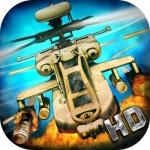
CHAOS Combat Copters HD - №1 Multiplayer Helicopter Simulator 3D
Games and Entertainment
App
ENJOY WHAT IS SIMPLY THE BEST MULTIPLAYER HELICOPTER ARCADE ON TABLETS & SMARTPHONES C.H.A.O.S -...
Puke Flyswatter (7 KP) rated Star Wars: Episode V – The Empire Strikes Back (1980) in Movies
Sep 12, 2017
Incredible special effects for the time (1 more)
Story writing and characters
The Force is strong with this one
Contains spoilers, click to show
Most fans argue over which of its ongoing episodes, is the best in the Star Wars saga. The Empire Strikes Back took a darker approach than its predecessor in delivering the story of the Rebellion's fight to bring peace and freedom to the galaxy by destroying the Empire who now rule with far more than just iron fist, having snatched its power from the dead hands of the Old Republic. This in my opinion, is what made it not only the best of the saga, but the best science fiction movie of all time and more controversially- one of the best movies ever made; an accolade that has still to be taken by any other movie of the genre to date.
George Lucas, ("the daddy" and brains behind the series of stories of intergalactic war and oppression), had reportedly suffered from exhaustion to the point of near breakdown- even suffering a near heart attack and so decided for the sake of his health and mental well-being not to helm this project which led to Irvin Kershner taking the reins instead.
Kershner's change in approach is apparent throughout the movie and even from the opening scene on Hoth- the barren ice planet- there is a palpably hollow and sombre overall feel which is more than likely deliberate so as to reflect the apparent futility and hopelessness of the protagonists’ struggle. This cleverly generated more empathy toward the characters, meaning the viewer became more invested in the outcome of the story.
The scope and scale of each scene is also cleverly used to give the viewer insight into the characters' state of mind and the choice in lighting and colour (or lack thereof) to deliver more impact and focus on the subject matter in each scene.
As far as story writing and script go, this is also miles ahead of the first and brilliant instalment of the saga. This was apparently due to George Lucas not being happy with the direction of the original draft of the screenplay and being forced to write a further two drafts for the movie following the death of the original screenplay author- the renowned Leigh Brackett who sadly died losing her battle with cancer. Lucas felt it necessary to then bring in Lawrence Kasdan to complete the writing of the screenplay, Kasdan would also go on to pen the screenplays for Raiders Of The Lost Ark, Return Of The Jedi, Star Wars VII The Force Awakens (as co-writer) and is also currently penning the screenplay for the upcoming Han Solo...solo movie. His input and impact on Empire took the saga from the swashbuckling heroic scenes of A New Hope to the almost World War-esque style in which characters are somewhat downtrodden and clearly showing the negative psychological effects on their personalities that are associated with any and every war. This set it apart from A New Hope which, despite the deaths of countless poor and innocent Jawas, inhabitants of Alderaan and Obi-Wan Kenobi, still managed to keep an optimistic outlook which while being an immensely fun and thrilling watch, did not do much in the way of drawing the viewer in and having a connection with the characters. This did not in any way ruin my enjoyment of the movie, I was a kid after all, but upon watching Empire for the first time, I was introduced to a new concept in cinema for me- one where the heroes do not always win, but who still carry on the fight no matter how emotionally scarred or beaten they may be. As a kid, this was so much more of a compelling and exciting movie as it was near impossible to guess where the story would lead and what the future would hold for the then trilogy.
Another highly positive aspect, is that the viewer did not necessarily need to have watched the previous movie and could jump straight into the story, able to enjoy it as each of the characters and the movie’s histories are cleverly re-introduced and explained without the use of exhausting flashbacks or back stories, effectively allowing it to serve as a standalone movie.
For people- who for some reason unbeknownst to me- that are not fans of the genre, this remains as a compelling, well-written and visually stunning piece of movie-making that still stands the test of time and one that anyone of any age can enjoy.
George Lucas, ("the daddy" and brains behind the series of stories of intergalactic war and oppression), had reportedly suffered from exhaustion to the point of near breakdown- even suffering a near heart attack and so decided for the sake of his health and mental well-being not to helm this project which led to Irvin Kershner taking the reins instead.
Kershner's change in approach is apparent throughout the movie and even from the opening scene on Hoth- the barren ice planet- there is a palpably hollow and sombre overall feel which is more than likely deliberate so as to reflect the apparent futility and hopelessness of the protagonists’ struggle. This cleverly generated more empathy toward the characters, meaning the viewer became more invested in the outcome of the story.
The scope and scale of each scene is also cleverly used to give the viewer insight into the characters' state of mind and the choice in lighting and colour (or lack thereof) to deliver more impact and focus on the subject matter in each scene.
As far as story writing and script go, this is also miles ahead of the first and brilliant instalment of the saga. This was apparently due to George Lucas not being happy with the direction of the original draft of the screenplay and being forced to write a further two drafts for the movie following the death of the original screenplay author- the renowned Leigh Brackett who sadly died losing her battle with cancer. Lucas felt it necessary to then bring in Lawrence Kasdan to complete the writing of the screenplay, Kasdan would also go on to pen the screenplays for Raiders Of The Lost Ark, Return Of The Jedi, Star Wars VII The Force Awakens (as co-writer) and is also currently penning the screenplay for the upcoming Han Solo...solo movie. His input and impact on Empire took the saga from the swashbuckling heroic scenes of A New Hope to the almost World War-esque style in which characters are somewhat downtrodden and clearly showing the negative psychological effects on their personalities that are associated with any and every war. This set it apart from A New Hope which, despite the deaths of countless poor and innocent Jawas, inhabitants of Alderaan and Obi-Wan Kenobi, still managed to keep an optimistic outlook which while being an immensely fun and thrilling watch, did not do much in the way of drawing the viewer in and having a connection with the characters. This did not in any way ruin my enjoyment of the movie, I was a kid after all, but upon watching Empire for the first time, I was introduced to a new concept in cinema for me- one where the heroes do not always win, but who still carry on the fight no matter how emotionally scarred or beaten they may be. As a kid, this was so much more of a compelling and exciting movie as it was near impossible to guess where the story would lead and what the future would hold for the then trilogy.
Another highly positive aspect, is that the viewer did not necessarily need to have watched the previous movie and could jump straight into the story, able to enjoy it as each of the characters and the movie’s histories are cleverly re-introduced and explained without the use of exhausting flashbacks or back stories, effectively allowing it to serve as a standalone movie.
For people- who for some reason unbeknownst to me- that are not fans of the genre, this remains as a compelling, well-written and visually stunning piece of movie-making that still stands the test of time and one that anyone of any age can enjoy.
Bob Mann (459 KP) rated The Mauritanian (2021) in Movies
Apr 14, 2021
Great acting from all four leads, especially Tahar Rahim (2 more)
Great use of screen ratios for flashbacks
Very thought provoking
War crimes don't just happen on the battlefield
It’s 2001. Bush and Rumsfeld seek vengeance on the perpetrators of 9/11. Quite right too. But rounding up hundreds of suspects and incarcerating them for years, without charge, in Guantánamo Bay in Cuba was an appalling act for a supposedly first-world country.
“The Mauritanian” then is the true story of one such unfortunate – Mohamedou Ould Slahi, played by Tahar Rahim. We first join Slahi at a family wedding in Nouakchott (good “Pointless” answer for the capital of Mauritania people!). ‘Invited for questioning’ by the American authorities, we next see Slahi in the Cuban stronghold.
Pro-bono lawyer Nancy Hollander (Jodie Foster) becomes a pariah by picking up his defence. Supporting her is assistant Teri Duncan (Shailene Woodley). Hollander is very formal and professionally aloof, not assuming his guilt or innocence. After meeting the man, and assuming his innocence, Duncan though is more emotionally involved. The man opposing them at trial is US Army prosecutor Stuart Couch (Benedict Cumberbatch). Couch, having lost one of his best friends aboard the South Tower plane, has an axe to grind.
As the pair battle unseen forces for access to documentation, they uncover more and more of the truth about life in Guantánamo Bay.
Positives:
- I've not read the book so I found the story gripping. As the related legal information is divulged, the movie drip-feeds flashbacks of Slahia's story, which is clever.
- Acting wise, "The Mauritanian" has top notch stuff. Tahir Rahim is excellent as Slahia. He portrays charismatic and confident businessman, brought down to earth with a bump. Not recognizing him with an Oscar nomination feels like a minor crime. He will have to make do with the BAFTA nomination. Also brilliant is Jodie Foster. As the illustrious Mrs Movie Man pointed out, it's so nice to see an actress acting her age with confidence. The ever-watchable Shailene Woodley is also great, especially in a dramatic 'dismissal' scene. She adds some much needed warmth to the legal team. The southern drawl from Cumberbatch is a bit of a surprise and takes some getting used to. But it's still a strong performance from him.
- After ranting on last time at Zack Snyder's use of 4:3 screen ratios in "Justice League", here is an intelligent use of the technique. The film is in 16:9 ratio, but then pivots to 4:3 for all of the Guantanamo flashback scenes, reflecting the claustrophobia of Slahia's position.
- Real-life footage over the closing titles is absolutely fascinating.
Negatives:
- I personally didn't find this a particular negative, but I went into the film knowing it to be a "legal drama". So there would be lots of scenes, as in "The Trial of the Chicago 7", with courtroom debate and gavel-banging, right? Actually, there is almost none of that. Most of the legal action is in terms of the preparation of the case and the paperwork involved. (If this makes the movie sound excruciatingly dull... think again!)
- The Guantanamo story ends quite abruptly (with the above-mentioned jolt), and left me wanting to see more of the intervening time. It's not often that I complain about a film running too short, but here is one where just a little of "the Snyder treatment" might have been welcomed!
Additional Note for the squeamish: For those worried about seeing distressing scenes of torture (e.g. Fingernail extraction, etc), these are - although disturbing - more of the "psychological torment" type. So those of a squeamish disposition can still watch this one.
Summary Thoughts:
The fact that "The Mauritanian" is a true story hammers home just what the US has been up to over the last 20 years. War crimes are not only committed on the battlefield.
Director Kevin Macdonald is no stranger to documentaries ("Touching the Void", "Whitney"). He's also proved adept at bringing gripping true stories to the screen (having previously given us "The Last King of Scotland"). Here, the emotional journeys of the key characters are well observed making the movie 'highly recommended'.
For the full One Mann's Movies review see here - https://bob-the-movie-man.com/2021/04/09/the-mauritanian-america-are-you-squirming-with-embarrassment/
“The Mauritanian” then is the true story of one such unfortunate – Mohamedou Ould Slahi, played by Tahar Rahim. We first join Slahi at a family wedding in Nouakchott (good “Pointless” answer for the capital of Mauritania people!). ‘Invited for questioning’ by the American authorities, we next see Slahi in the Cuban stronghold.
Pro-bono lawyer Nancy Hollander (Jodie Foster) becomes a pariah by picking up his defence. Supporting her is assistant Teri Duncan (Shailene Woodley). Hollander is very formal and professionally aloof, not assuming his guilt or innocence. After meeting the man, and assuming his innocence, Duncan though is more emotionally involved. The man opposing them at trial is US Army prosecutor Stuart Couch (Benedict Cumberbatch). Couch, having lost one of his best friends aboard the South Tower plane, has an axe to grind.
As the pair battle unseen forces for access to documentation, they uncover more and more of the truth about life in Guantánamo Bay.
Positives:
- I've not read the book so I found the story gripping. As the related legal information is divulged, the movie drip-feeds flashbacks of Slahia's story, which is clever.
- Acting wise, "The Mauritanian" has top notch stuff. Tahir Rahim is excellent as Slahia. He portrays charismatic and confident businessman, brought down to earth with a bump. Not recognizing him with an Oscar nomination feels like a minor crime. He will have to make do with the BAFTA nomination. Also brilliant is Jodie Foster. As the illustrious Mrs Movie Man pointed out, it's so nice to see an actress acting her age with confidence. The ever-watchable Shailene Woodley is also great, especially in a dramatic 'dismissal' scene. She adds some much needed warmth to the legal team. The southern drawl from Cumberbatch is a bit of a surprise and takes some getting used to. But it's still a strong performance from him.
- After ranting on last time at Zack Snyder's use of 4:3 screen ratios in "Justice League", here is an intelligent use of the technique. The film is in 16:9 ratio, but then pivots to 4:3 for all of the Guantanamo flashback scenes, reflecting the claustrophobia of Slahia's position.
- Real-life footage over the closing titles is absolutely fascinating.
Negatives:
- I personally didn't find this a particular negative, but I went into the film knowing it to be a "legal drama". So there would be lots of scenes, as in "The Trial of the Chicago 7", with courtroom debate and gavel-banging, right? Actually, there is almost none of that. Most of the legal action is in terms of the preparation of the case and the paperwork involved. (If this makes the movie sound excruciatingly dull... think again!)
- The Guantanamo story ends quite abruptly (with the above-mentioned jolt), and left me wanting to see more of the intervening time. It's not often that I complain about a film running too short, but here is one where just a little of "the Snyder treatment" might have been welcomed!
Additional Note for the squeamish: For those worried about seeing distressing scenes of torture (e.g. Fingernail extraction, etc), these are - although disturbing - more of the "psychological torment" type. So those of a squeamish disposition can still watch this one.
Summary Thoughts:
The fact that "The Mauritanian" is a true story hammers home just what the US has been up to over the last 20 years. War crimes are not only committed on the battlefield.
Director Kevin Macdonald is no stranger to documentaries ("Touching the Void", "Whitney"). He's also proved adept at bringing gripping true stories to the screen (having previously given us "The Last King of Scotland"). Here, the emotional journeys of the key characters are well observed making the movie 'highly recommended'.
For the full One Mann's Movies review see here - https://bob-the-movie-man.com/2021/04/09/the-mauritanian-america-are-you-squirming-with-embarrassment/
Lee (2222 KP) rated Train to Busan (2016) in Movies
Jul 27, 2017
Zombies on a train!
Taking the very simple concept of ‘zombies on a train’, this isn’t just one of the best zombie movies I’ve ever seen, it’s one of the best movies I’ve seen in recent years – period!
This South Korean movie doesn’t waste much time in setting the scene – a banker agrees to take his daughter by train to visit her mother in Busan. But as the train pulls out of the station, a zombie epidemic breaks out. And the last person to rush through the closing train doors appears to be a little bit unwell…
The epidemic quickly spreads throughout the train and those who are left must act quickly to seal off the carriages and try to work out how to make it to their loved ones who they’ve become separated from in other carriages. Like 28 days later, or World War Z, our zombies move quickly and aren’t afraid to climb all over each other in their ravenous pursuit of the living, piling themselves up against glass walls and doors in order to break through, then continuing to chase with broken, contorted limbs. In an interesting twist though, these zombies work on their sense of sight a lot more than smell or hearing, something which works to the advantage of the living as the train rockets through dark tunnels for minutes at a time.
As the living quickly start dwindling in numbers, we’re left with a pretty good and varied selection of characters. Among them – our hero and his young daughter, a man and his pregnant wife, a bunch of high school kids, a couple of elderly sisters and a selfish businessman who’s out for himself. After a brief stop at a supposedly safe station turns out to be overrun by hordes of zombies, the survivors barely make it back onto the train and continue on their way to Busan, rumoured to be a safe haven.
Aside from the highly enjoyable zombie action, there’s plenty of human emotion and sadness, along with some great performances from all involved. This is a highly innovative and serious enjoyable thrill ride and I cannot recommend it enough.
This South Korean movie doesn’t waste much time in setting the scene – a banker agrees to take his daughter by train to visit her mother in Busan. But as the train pulls out of the station, a zombie epidemic breaks out. And the last person to rush through the closing train doors appears to be a little bit unwell…
The epidemic quickly spreads throughout the train and those who are left must act quickly to seal off the carriages and try to work out how to make it to their loved ones who they’ve become separated from in other carriages. Like 28 days later, or World War Z, our zombies move quickly and aren’t afraid to climb all over each other in their ravenous pursuit of the living, piling themselves up against glass walls and doors in order to break through, then continuing to chase with broken, contorted limbs. In an interesting twist though, these zombies work on their sense of sight a lot more than smell or hearing, something which works to the advantage of the living as the train rockets through dark tunnels for minutes at a time.
As the living quickly start dwindling in numbers, we’re left with a pretty good and varied selection of characters. Among them – our hero and his young daughter, a man and his pregnant wife, a bunch of high school kids, a couple of elderly sisters and a selfish businessman who’s out for himself. After a brief stop at a supposedly safe station turns out to be overrun by hordes of zombies, the survivors barely make it back onto the train and continue on their way to Busan, rumoured to be a safe haven.
Aside from the highly enjoyable zombie action, there’s plenty of human emotion and sadness, along with some great performances from all involved. This is a highly innovative and serious enjoyable thrill ride and I cannot recommend it enough.
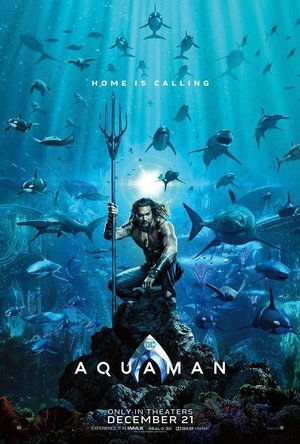
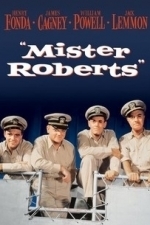
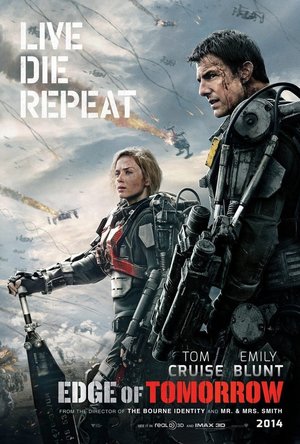
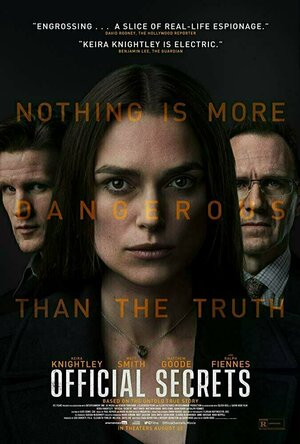
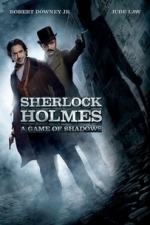
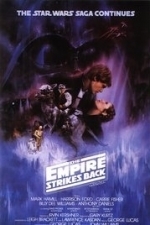
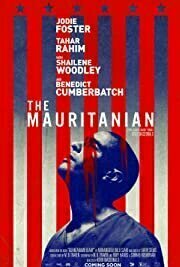
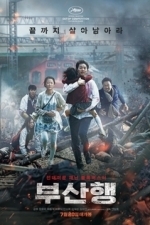
Rache (174 KP) Dec 15, 2018
Lee (2222 KP) Dec 15, 2018